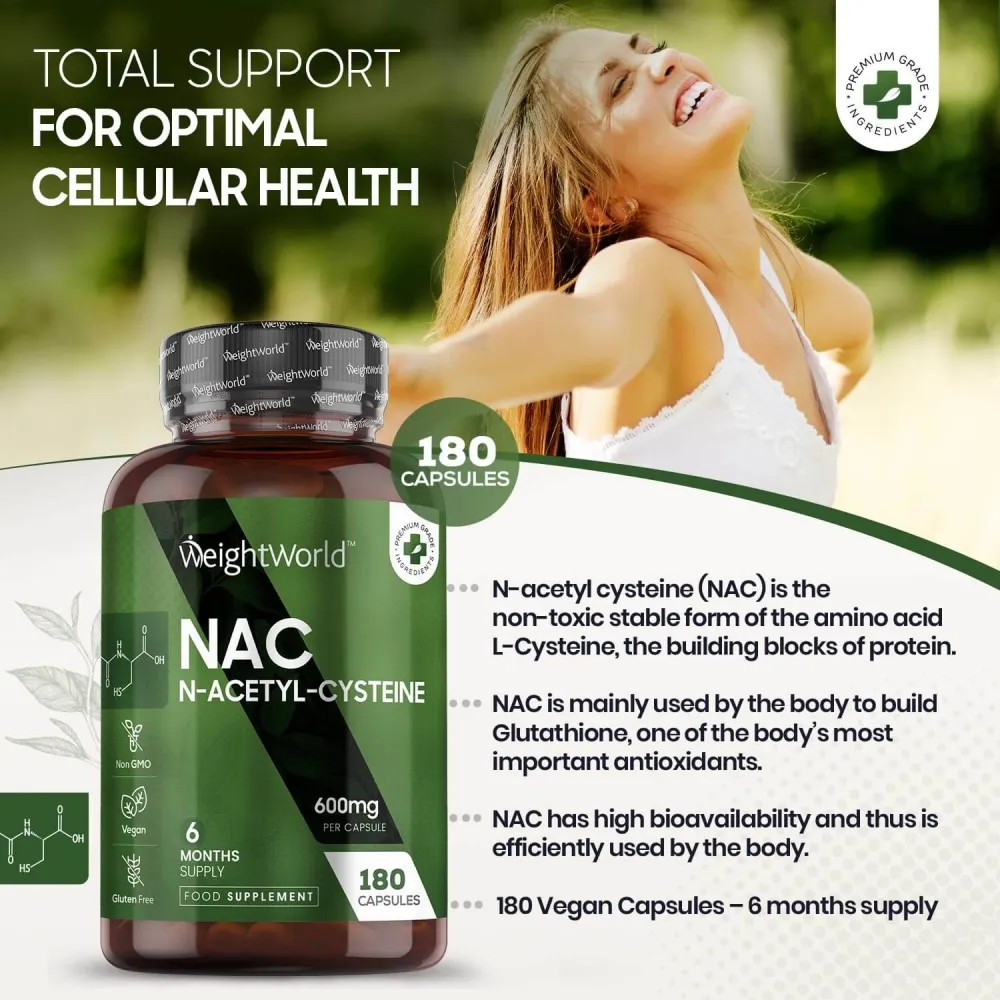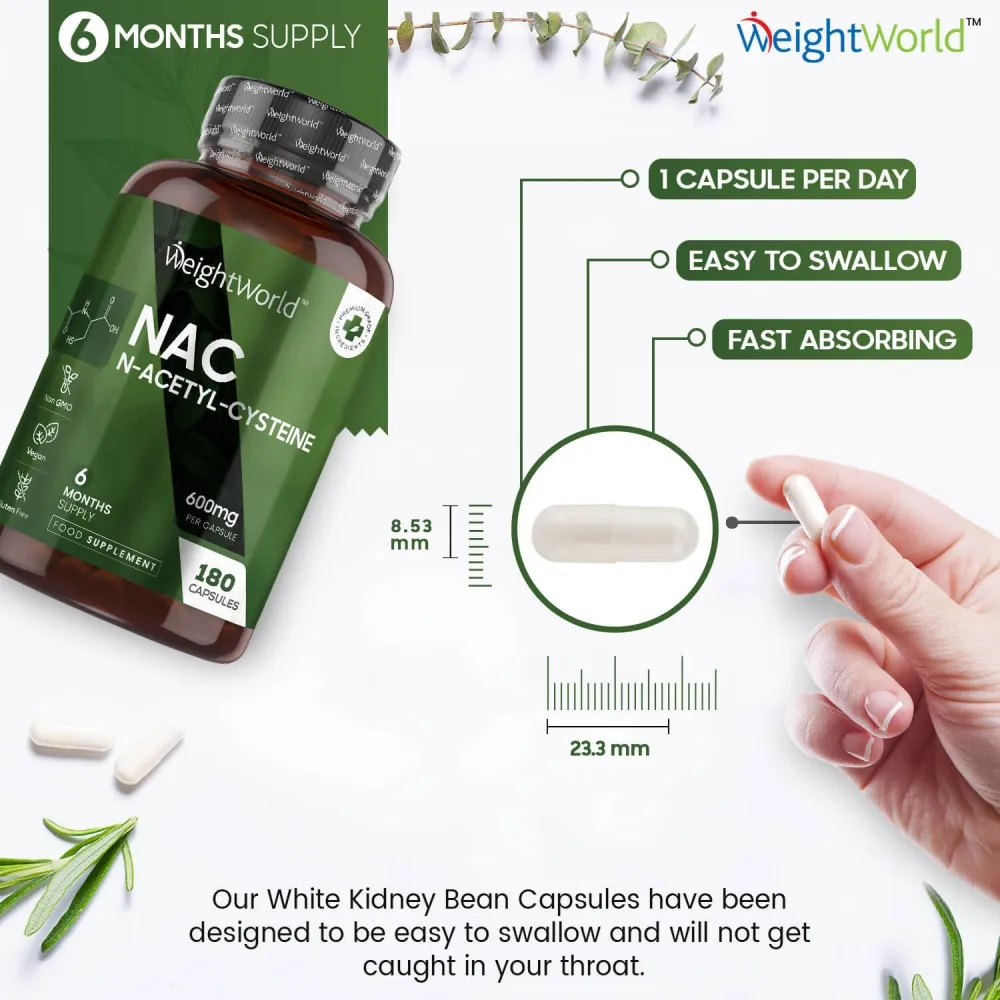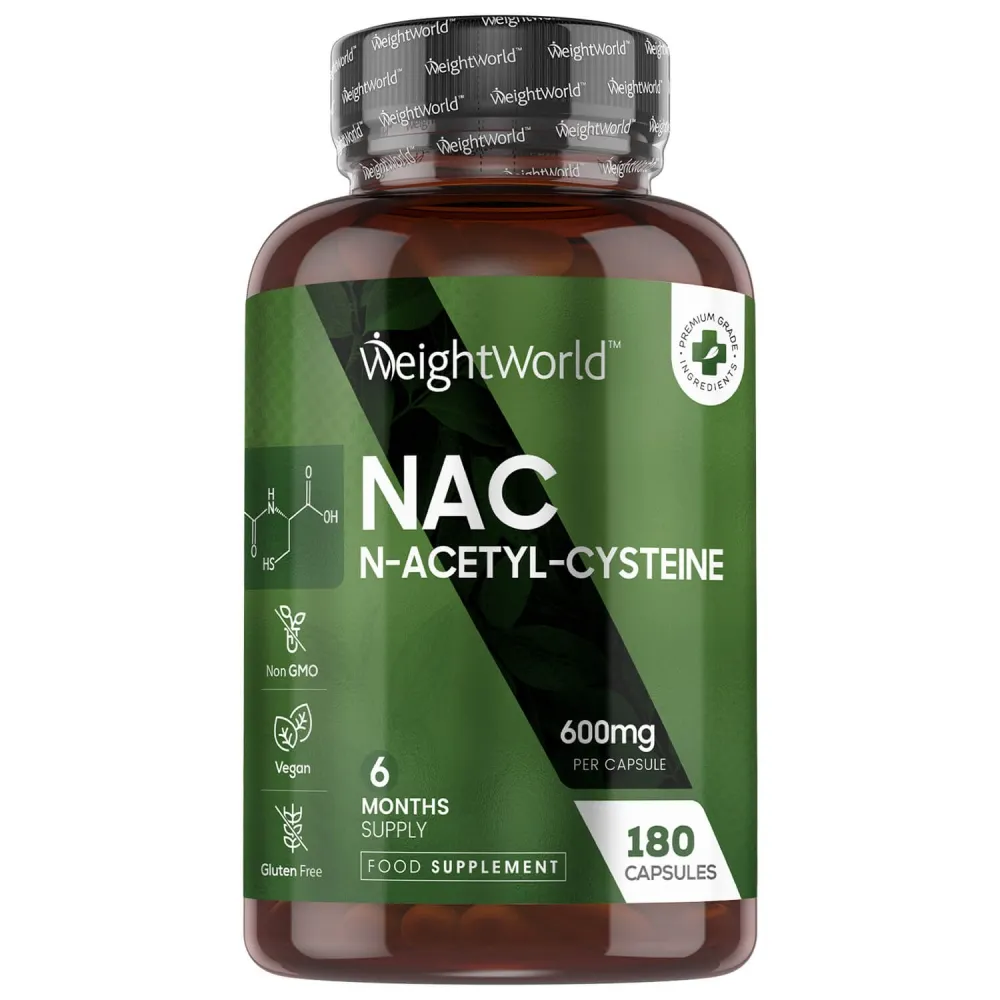Introduction
In the world of dietary supplements, N-Acetyl Cysteine (NAC) has been gaining significant attention for its potential health benefits. NAC is a modified form of the amino acid cysteine, which plays a crucial role in the body’s antioxidant defense system and various other physiological processes. This article explores the science behind NAC, its potential health benefits and its applications as a supplement.
What is N-Acetyl Cysteine (NAC)?
N-Acetyl Cysteine, often referred to as NAC, is a stable and bioavailable form of the amino acid cysteine. Cysteine is essential for the synthesis of glutathione, a powerful endogenous antioxidant that helps neutralize harmful free radicals in the body. NAC acts as a precursor to glutathione, making it a valuable compound in maintaining oxidative balance and protecting cells from damage.
Health Benefits of NAC
Antioxidant Properties: One of the primary roles of NAC is its ability to boost glutathione levels. Glutathione is a vital antioxidant that helps combat oxidative stress, reduce inflammation and protect cells from damage caused by free radicals. This makes NAC a potential ally in preventing various chronic diseases associated with oxidative stress, including cardiovascular disease and neurodegenerative conditions like Alzheimer’s and Parkinson’s disease.
Respiratory Health: NAC is widely recognized for its efficacy in supporting respiratory health. It is used as a mucolytic agent to help break down and thin mucus, making it easier to clear from the airways. This makes NAC a valuable supplement for individuals with conditions like chronic obstructive pulmonary disease (COPD), asthma and bronchitis.
Liver Support: NAC has been studied for its potential to protect and support the liver. It is used medically as an antidote for acetaminophen (paracetamol) overdose, a common cause of liver toxicity. Additionally, NAC may aid in liver detoxification processes and help mitigate damage caused by alcohol and certain medications.
Mental Health: Some studies suggest that NAC may have a role to play in mental health. It has been investigated as a potential adjunctive treatment for conditions like depression, bipolar disorder and obsessive-compulsive disorder (OCD). While more research is needed in this area, NAC’s antioxidant properties and its impact on glutamate regulation in the brain are believed to contribute to its potential mental health benefits.
Immune System Support: NAC has been shown to modulate the immune system by regulating the production of inflammatory molecules. This modulation can help maintain a balanced immune response, which is essential for overall health.


Dosage and Safety
NAC is generally considered safe when used as directed. However, it’s essential to consult with a healthcare professional before starting any new supplement regimen, especially if you have underlying medical conditions or are taking medications. The recommended dosage can vary depending on the specific health concern being addressed.
Conclusion
N-Acetyl Cysteine (NAC) is a versatile and promising dietary supplement with a range of potential health benefits. From its antioxidant properties to its support for respiratory health, liver function and mental well-being, NAC has garnered attention from researchers and healthcare practitioners alike. As with any supplement, it’s crucial to use NAC under the guidance of a healthcare professional to ensure proper dosage and safety. While further research is needed to fully understand the extent of its benefits, NAC holds great promise as a valuable addition to overall health and wellness strategies.






